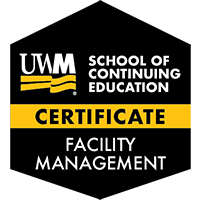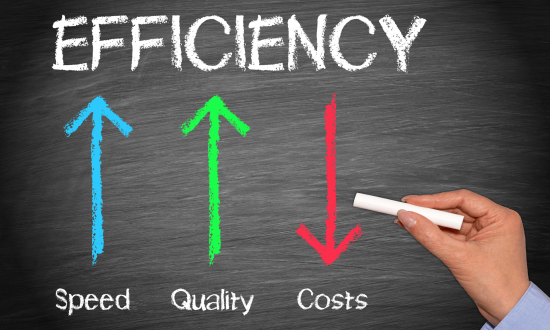
A team manager is responsible for managing a group of people. They balance their workload and complete tasks on time. They manage conflicts and provide constructive feedback. Successful managers balance their work with the needs of their team members. These traits make team leaders effective. They can also inspire team members and improve morale.
Leadership skills
Leadership skills are an essential ingredient to becoming a successful team manager. Leadership skills are essential for team leaders. They must be able think strategically and translate long-term organizational goals into tangible outcomes. Leaders without this skill are likely to run into problems that will harm the organization long-term. They will lose sight the importance of their teams to the organization as well as their own roles in it. Developing strategic thinking requires a leader to step back from current issues and understand the organization's goals and the complexities of internal and external factors.
A team leader must be approachable to others and willing to share their opinions with them. It is a crucial skill for leadership. This shows you are able to listen and understand the viewpoints of others before you make decisions about how to handle them. This skill allows you to motivate your team members while acknowledging their input.

Communication skills
Communication skills are vital in the workplace and leading a group. Communication is key to the success and growth of any organization. A Gatehouse study found that poor communication between managers was the leading cause of ineffective communication within an organization. Also, only 14% of employees stated that their performance reviews inspired them. Managers need to learn how to connect with their employees and build relationships in order to overcome this problem. Effective listening and clarification of the views and opinions of your team members is a way to achieve this.
The best way to communicate with people is to be direct and honest with them. Some employees are more comfortable with generalizations while others need specific details. It is possible to adjust your communication style based on the type of communication your team members prefer. Paying more attention and consideration to the communication preferences of your team members will make them feel valued and heard.
Organizational skills
You need to be able to organize a team. These skills will help you manage time, conflict, and relationships. The ability to prioritize tasks and be organized will make you look more trustworthy and have a higher level of credibility. You can solve complicated problems by having organizational skills. You'll also be more calm under pressure when you are well-organized.
Being organized will allow you to communicate more effectively with your team. Being organized will help you save time and focus on the most important tasks. Your workspace will make you less productive and could cause stress. To keep your workspace organized, rewrite the to-do list.

Time management
Team management requires time management skills. Regular check-ins are a must, as well as the use of tools that allow you to track each project's status. Encourage your team members to be productive and celebrate their progress. By practicing good time management, you can maximize your team's productivity and prevent overload.
No matter how large or small your team is, time management will be crucial to the success and growth of your business. A time management strategy that works requires flexibility and adaptability to change. One way to do this is by aligning your team. Studies have shown that team members spend almost three-quarters of their time communicating and connecting. Inefficient communication is also responsible for 15 percent of the employee's lost work time.
FAQ
How do you define Six Sigma?
People who have worked with statistics and operations research will usually be familiar with the concepts behind six sigma. Anyone involved in business can benefit.
Because it requires a high degree of commitment, only leaders with strong leadership skills can implement it successfully.
How does Six Sigma work
Six Sigma employs statistical analysis to identify problems, measure them and analyze root causes. Six Sigma also uses experience to correct problems.
First, identify the problem.
Next, data are collected and analyzed in order to identify patterns and trends.
Next, corrective steps are taken to fix the problem.
Final analysis of data is done to determine if the problem has been solved.
This continues until you solve the problem.
How does a manager learn to manage?
Through demonstrating good management skills at every opportunity
Managers must monitor the performance of subordinates constantly.
You must act quickly if you notice that your subordinate isn’t performing to their standards.
You should be able to identify what needs improvement and how to improve things.
Six Sigma is so beloved.
Six Sigma is easy to use and can lead to significant improvements. Six Sigma also gives companies a framework for measuring improvement and helps them focus on what is most important.
What does the term "project management” mean?
This refers to managing all activities that are involved in a project's execution.
Our services include the definition of the scope, identifying requirements, preparing a budget, organizing project teams, scheduling work, monitoring progress and evaluating the results before closing the project.
How does a manager motivate their employees?
Motivation refers to the desire or need to succeed.
Enjoyable activities can motivate you.
You can also get motivated by seeing your contribution to the success or the improvement of the organization.
For example: If you want to be a doctor, you might find it more motivating seeing patients than reading medical books all day.
The inner motivation is another type.
You might feel a strong sense for responsibility and want to help others.
Maybe you like working hard.
Ask yourself why you aren't feeling motivated.
Then, consider ways you could improve your motivation.
Why is it so hard to make smart business decisions?
Complex business systems have many moving parts. The people who run them must juggle multiple priorities at once while also dealing with uncertainty and complexity.
It is important to understand the effects of these factors on the system in order to make informed decisions.
This requires you to think about the purpose and function of each component. You then need to consider how those individual pieces interact with each other.
You should also ask yourself if there are any hidden assumptions behind how you've been doing things. If so, it might be worth reexamining them.
You can always ask someone for help if you still have questions after all of this. You might find their perspective is different from yours and they may have insight that can help you find the solution.
Statistics
- Your choice in Step 5 may very likely be the same or similar to the alternative you placed at the top of your list at the end of Step 4. (umassd.edu)
- As of 2020, personal bankers or tellers make an average of $32,620 per year, according to the BLS. (wgu.edu)
- Our program is 100% engineered for your success. (online.uc.edu)
- The average salary for financial advisors in 2021 is around $60,000 per year, with the top 10% of the profession making more than $111,000 per year. (wgu.edu)
- 100% of the courses are offered online, and no campus visits are required — a big time-saver for you. (online.uc.edu)
External Links
How To
How do you apply the Kaizen method to your life?
Kaizen means continuous improvement. This term was first used by Toyota Motor Corporation in the 1950s. It refers to the Japanese philosophy that emphasizes continuous improvement through small incremental changes. It is a process where people come together to improve their processes.
Kaizen is one of Lean Manufacturing's most efficient methods. Kaizen is a concept where employees in charge of the production line are required to spot problems during the manufacturing process before they become major issues. This will increase the quality and decrease the cost of the products.
Kaizen is about making everyone aware of the world around them. If something is wrong, it should be corrected immediately so that no problem occurs. If someone is aware of a problem at work, he/she should inform his/her manager immediately.
Kaizen is based on a few principles. Start with the end product, and then move to the beginning. We can improve the factory by first fixing the machines that make it. We then fix the machines producing components, and the machines producing raw materials. Then we fix the workers, who directly work with these machines.
This approach is called 'kaizen' because it focuses on improving everything steps by step. After we're done with the factory, it's time to go back and fix the problem.
To implement kaizen in your business, you need to find out how to measure its effectiveness. There are several ways that you can tell if your kaizen system is working. Another way to determine if kaizen is working well is to look at the quality of the products. Another method is to determine how much productivity has improved since the implementation of kaizen.
A good way to determine whether kaizen has been implemented is to ask why. It was because of the law, or simply because you wanted to save some money. Did you really believe it would lead to success?
Congratulations! You are ready to start kaizen.